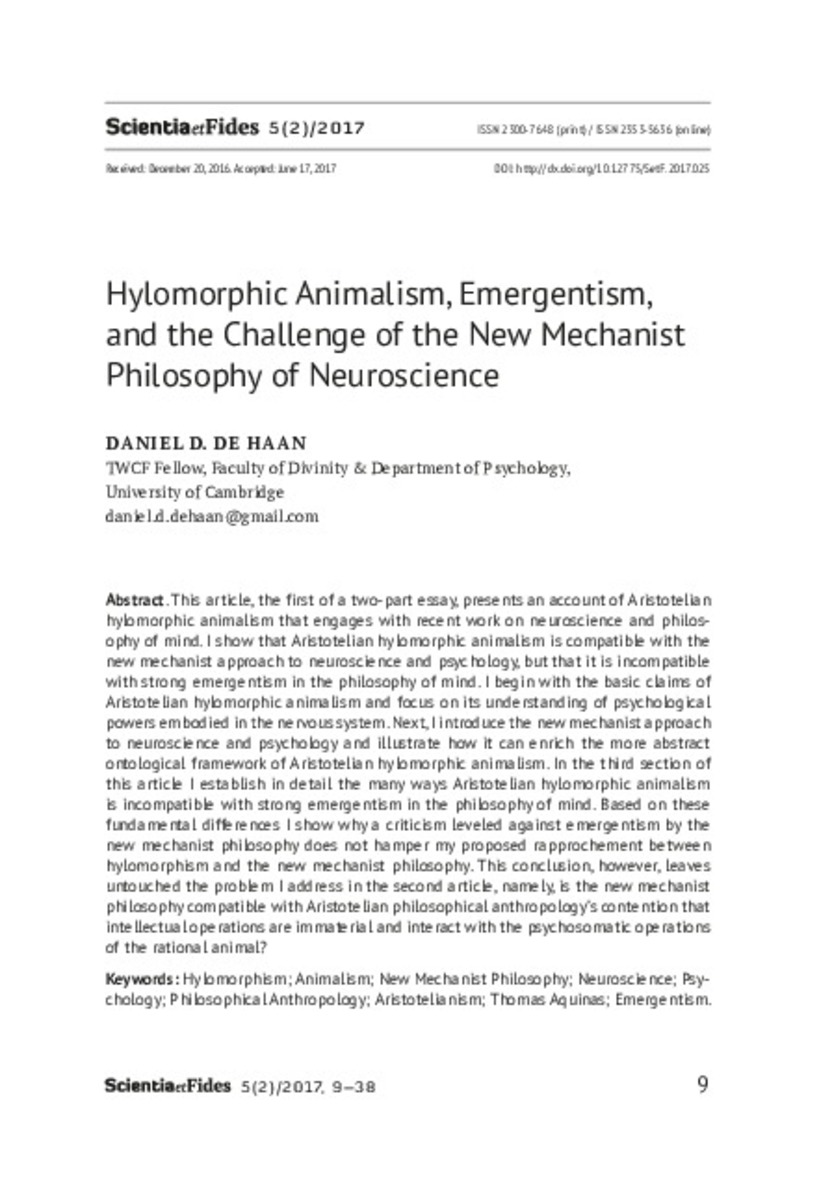Hylomorphic Animalism, Emergentism, and the Challenge of the New Mechanist Philosophy of Neuroscience
Keywords:
Hylomorphism
Animalism
New Mechanist Philosophy
Neuroscience
Psychology
Philosophical Anthropology
Aristotelianism
Thomas Aquinas
Emergentism
Publisher:
Servicio de Publicaciones de la Universidad de Navarra
Citation:
De Haan, D. D. (Daniel D.). "Hylomorphic Animalism, Emergentism, and the Challenge of the New Mechanist Philosophy of Neuroscience". Scientia et Fides. 5 (2), 2017, 9 - 38
Statistics and impact
0 citas en

0 citas en

Items in Dadun are protected by copyright, with all rights reserved, unless otherwise indicated.







